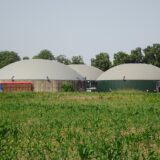
UK to implement sustainable aviation fuel mandate by 2030
The United Kingdom will implement a sustainable aviation fuel (SAF) mandate to ensure at least 10% of jet fuel is SAF by 2030. The government’s ambition to have at least five commercial-scale SAF plants under construction in the UK by 2025.
Launched at Farnborough International Airshow last week, the UK’s “Jet Zero” strategy commits UK domestic aviation to achieving net zero emissions by 2040, and for all airports in England to be zero-emission by the same year.
It also includes a plan for the industry to stay below pre-pandemic levels of carbon emissions through measures focused on everything from delivering system efficiencies to new technologies, with progress monitored annually.
This strategy positions the UK government as a global leader in the journey towards more sustainable flight and we will play our part in pioneering the technical solutions that will make this vision a reality. The UK is the world’s third largest aviation network.
Aviation is currently responsible for around 2.5% of global carbon dioxide (CO2) emissions. With the sector contributing GBP22 billion (USD26.5 billion) to the UK economy, and set to grow as it recovers from the pandemic, the UK’s Jet Zero strategy provides the tools to help future-proof the aviation sector, deliver guilt-free air travel and create thousands more green jobs around the country.
“We want 2019 to be remembered as the peak year for aviation emissions. From now on, it should all be downhill for carbon emissions – and steadily uphill for green flights,” said UK Transport Secretary Grant Shapps.
“The UK is setting an example of the ambition needed to tackle climate change, and the Jet Zero strategy provides a clear path to building a greener aviation sector for generations to come.”
The six priority areas set out in the UK’s Jet Zero strategy are:
- Improving the efficiency of its existing aviation system, from aircraft to airports and airspace. The target is to improve fuel efficiency by 2% every year and provide a further GBP3.7 million (USD4.4 million) in 2022 to 2023 to support airports to modernise their airspace.
- Increasing support for sustainable aviation fuels (SAF), by creating secure and growing UK SAF demand through a SAF mandate that will require at least 10% of jet fuel to be made from sustainable sources by 2030 and kickstarting a domestic SAF industry, supported by the new GBP165 million (USD198.7 million) Advanced Fuels Fund.
- Supporting the development of zero-emission aircraft, with the aspiration of having zero-emission routes connecting places across the UK by 2030.
- Developing carbon markets and greenhouse gas removal technologies to drive decarbonisation and offset any residual emissions, including by enhancing the UK Emission Trade Scheme (UK ETS).
- Providing consumers with better information so they can make sustainable aviation choices. The UK will provide consumers with environmental information at the time of booking air travel in autumn 2022.
- Increasing understanding of the non-CO2 impacts of aviation, such as contrails and nitrogen oxides.
.jpg)











